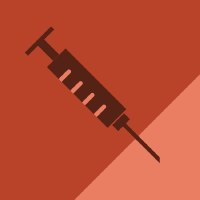Topic Menu
► Topic MenuTopic Editors

Mucosal Immunity to Infectious Diseases
Topic Information
Dear Colleagues,
Mucosal immunity plays an important role in host defense against diverse infectious diseases. Composed of anatomically remote compartments, the mucosal immune system constitutes the first line of defense against various pathogens. Mucosal immunity, which includes innate and adaptive immunity, is mainly induced in the mucosal-associated lymphoid tissues. By inducing effective mucosal immunity, infections can be prevented or aborted at the port of entry before the pathogens disseminate systemically. Moreover, mucosal immunity has the advantage of eliminating small/residual niduses locally. Studying the induction of mucosal immunity can help us to understand the mechanisms involved in controlling pathogens that are transmitted through the mucosa. In addition, this information will facilitate the of design vaccines and treatments against infectious diseases. This Topic aims to publish papers on the induction and application of mucosal immunity. Thus, we invite you to submit your recent findings to this Topic in the form of original research or review articles and communications focusing on the induction and application of mucosal immunity against infectious diseases.
Dr. Jay A. Berzofsky
Dr. Yongjun Sui
Topic Editors
Keywords
- mucosal immunity
- infectious diseases
- viruses
- bacterial
- parasite
- fungi
- innate immunity
- adaptive immunity
- vaccine
- therapy
Participating Journals
| Journal Name | Impact Factor | CiteScore | Launched Year | First Decision (median) | APC |
|---|---|---|---|---|---|

Cells
|
6.0 | 9.0 | 2012 | 16.6 Days | CHF 2700 |

Pathogens
|
3.7 | 5.1 | 2012 | 16.4 Days | CHF 2700 |

Receptors
|
- | - | 2022 | 15.0 days * | CHF 1000 |

Vaccines
|
7.8 | 7.0 | 2013 | 19.2 Days | CHF 2700 |

Viruses
|
4.7 | 7.1 | 2009 | 13.8 Days | CHF 2600 |
* Median value for all MDPI journals in the second half of 2023.

MDPI Topics is cooperating with Preprints.org and has built a direct connection between MDPI journals and Preprints.org. Authors are encouraged to enjoy the benefits by posting a preprint at Preprints.org prior to publication:
- Immediately share your ideas ahead of publication and establish your research priority;
- Protect your idea from being stolen with this time-stamped preprint article;
- Enhance the exposure and impact of your research;
- Receive feedback from your peers in advance;
- Have it indexed in Web of Science (Preprint Citation Index), Google Scholar, Crossref, SHARE, PrePubMed, Scilit and Europe PMC.


